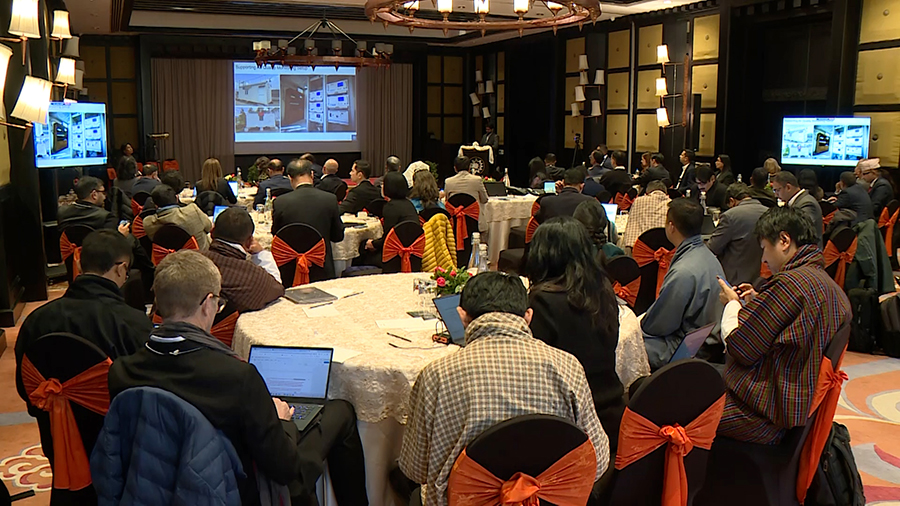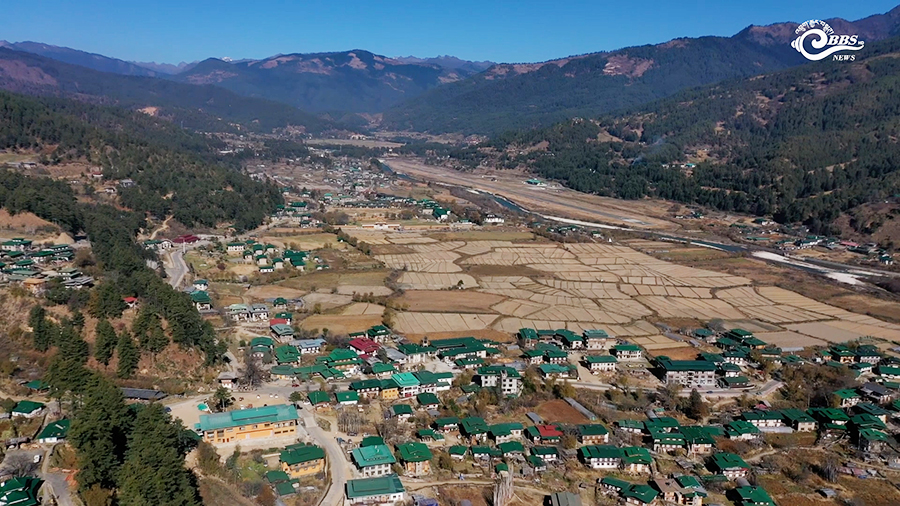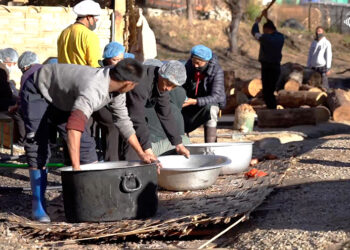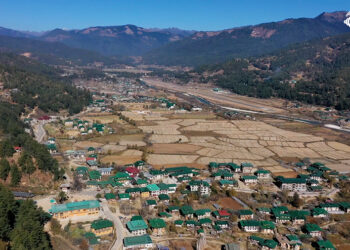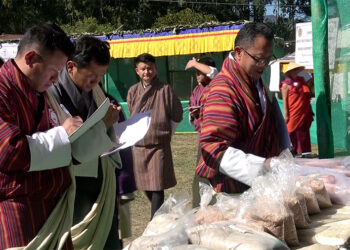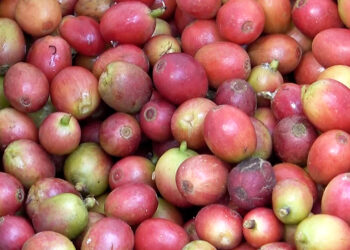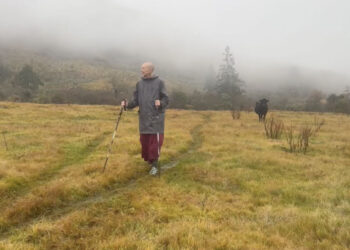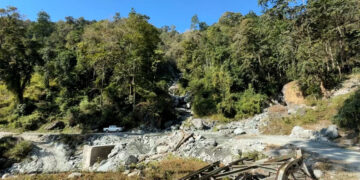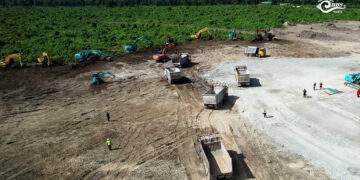Featured News
Asia Rock Fest–Bhutan marks new era for local rock scene
Bhutan is about to experience something completely new, its first full-scale rock music festival. But this moment did not happen...
British nun Ani Pema Deki completes 400km trek from Haa to Trashigang, raising over Nu 9 M for children with disabilities
Ani Pema Deki, also known as Emma Slade, has completed her 400-kilometre walk across the Trans-Bhutan Trail to raise funds...
Moments with the Great Fourth: memories that still touch Bhutanese hearts
For many Bhutanese, a moment shared with His Majesty the Fourth Druk Gyalpo remains one of the most treasured moments...
His Majesty the Fourth Druk Gyalpo’s timeless vision of happiness still shapes Bhutan’s future
In a world chasing growth through numbers, Bhutan chose to measure something far deeper: happiness. As the nation celebrates the...
JSW Law Graduate makes mark in the U.S., clears New York Bar Examination
A young Bhutanese woman lawyer has made a mark in the international legal arena by passing the prestigious New York...
Thimphu’s YDF hall buzzes with Deaf Week celebration
The YDF Hall in Thimphu came alive today with laughter, music, and the vibrant spirit of inclusion as the Disabled...
Journey of Karma Raygel, rescued elephant calf thrives under care in Jomotshangkha
Seven months ago, the officials of Jomotshangkha Wildlife Sanctuary in Samdrup Jongkhar rescued a young elephant calf from the wild....
State funeral held for late Dasho Zimpon Dorji Gyeltshen, late Dasho chooses incineration over open-air cremation
The state funeral for late Dasho Zimpon Dorji Gyeltshen was held today. His Holiness the Je Khenpo presided over the...
Veteran archers compete one last time in spirit of tradition and tribute
As a heartfelt farewell to the sport they once dominated, some of Bhutan’s finest former archers returned to the archery...
Gyalsup homecomings spark joy and unity across Bhutan, with heartfelt reunions going viral on social media
In a wave of emotion sweeping across Bhutan, thousands of families are experiencing a homecoming unlike any other. Their sons...
Politics
FASTag access for Bhutanese vehicles nears resolution as India submits SOP draft
The foreign affairs and external trade ministry has received a draft Standard Operating Procedure from the Indian government concerning the...
Popular
-
National Council recommends delinking health workforce to address rising attrition
-
‘News in Tales’ workshop equips Bhutanese journalists with narrative storytelling skills
-
Gazawoong farmers in Pema Gatshel celebrate successful coffee harvest
-
Lucky Pem launches on lucky.bt with equal chance for all participants
-
NA MPs press government on staffing gaps in education, health, and agriculture ministries
Casino en ligne avec mise en argent réel
Choisissez un casino en ligne avec argent réel pour jouer à vos jeux préférés et retirer vos gains en toute simplicité. Avec des options de paiement rapide et un environnement réglementé, vous bénéficiez d’un divertissement sûr et fiable.
South Asian countries discuss joint action to tackle air pollution
Countries sharing some of the world’s most polluted airsheds, Bangladesh, Bhutan, India, Nepal and Pakistan, are discussing coordinated actions to...
Second Dagap Farm Festival sees low turnout, farmers report limited sales
The second edition of the Dagap Farm Festival concluded yesterday, drawing mixed reactions from the public due to low customer...
Quiet heroes of Bumthang, volunteers gear up for 118th National Day
Excitement is growing for the 118th National Day which will take place in Bumthang in two days’ time. While all...
Local businesses benefit as Bumthang prepares for National Day
Bumthang As Bumthang prepares to host the 118th National Day celebrations, the festive mood is extending beyond the ceremonial grounds....
Zakar
Recent News
- South Asian countries discuss joint action to tackle air pollution
- Second Dagap Farm Festival sees low turnout, farmers report limited sales
- Quiet heroes of Bumthang, volunteers gear up for 118th National Day
- Local businesses benefit as Bumthang prepares for National Day
- Non-functional oil expeller forces Haa villagers to extract mustard oil in Paro
News Category
- Accidents
- Agriculture
- Announcement
- Audience Survey Report
- Business
- Crime/Legal
- Culture
- Development
- Disaster
- Economy
- Education
- Entertainment
- Environment
- Feature
- Featured
- Festival
- Global Peace Prayer Festival
- GMC
- Gyalsung
- Headlines
- Health
- HYDROPOWER
- K4 70th Birthday special feature
- Legal
- Literature
- Livestock
- Media
- Other Stories
- Politics
- RCSC
- Recent stories
- Religion
- Sci/Tech
- Social
- Sports
- Technology
- Tourism
- Uncategorized
- Video
- Video Story
- Wildlife
© 2024 BBSCL. All rights reserved.

